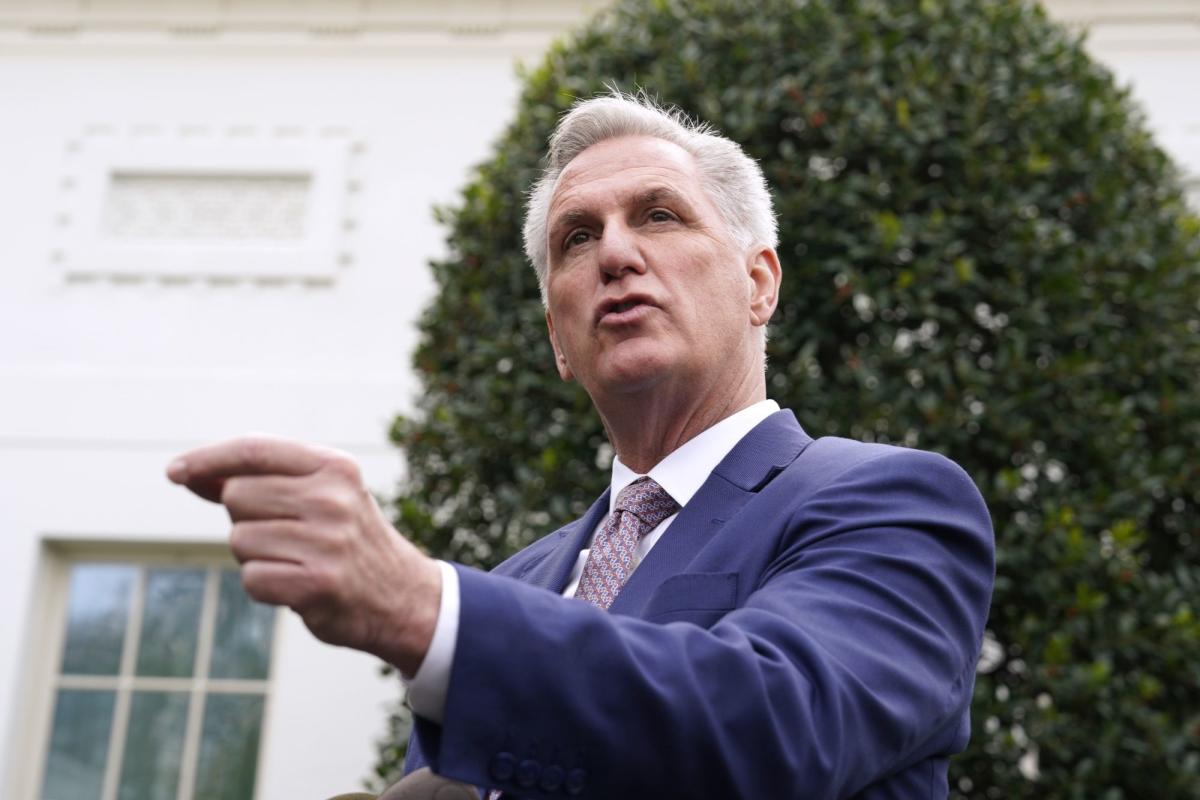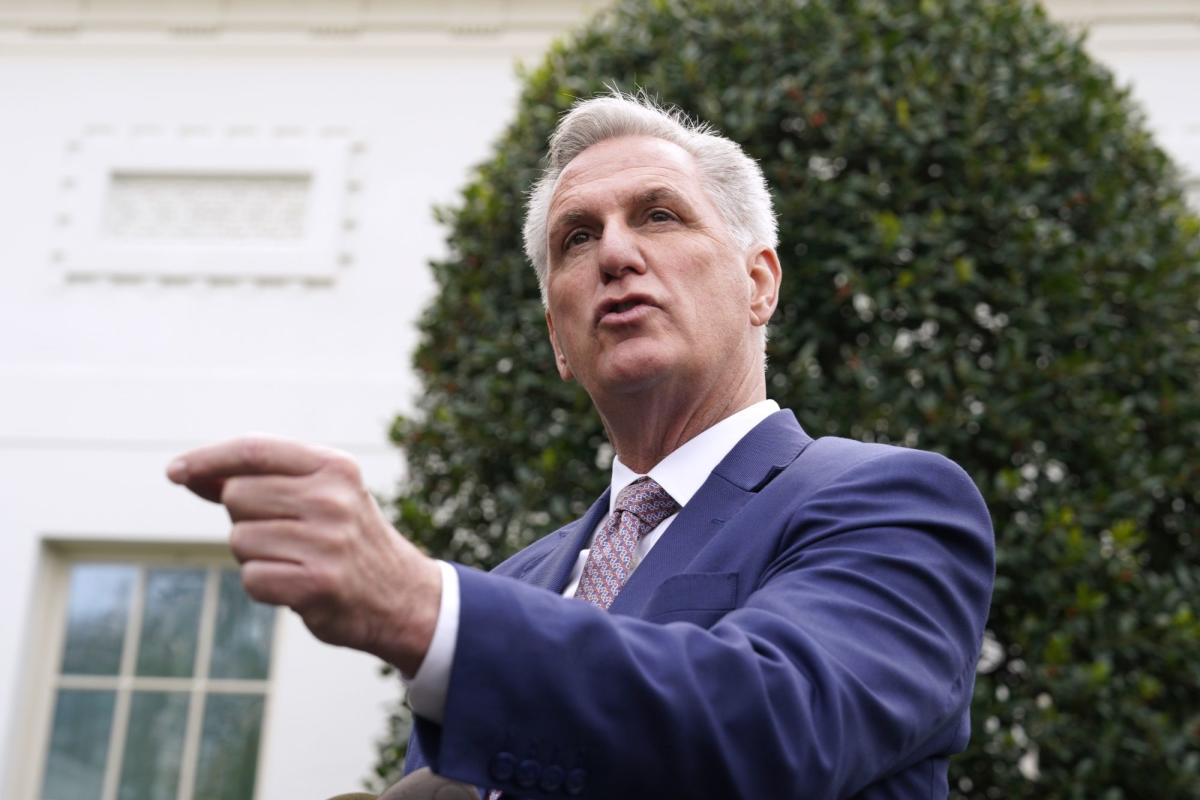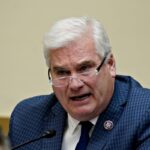
(Bloomberg) — House Republican leader Kevin McCarthy is running two simultaneous campaigns: one opposing a year-end government spending bill and another to convince his GOP naysayers to elect him speaker.
Most Read from Bloomberg
The California Republican has said the two are unrelated. His opposition to the spending bill, he said, “has to do with the American public and what the future of America is going to be when it comes to fiscal resources.”
But by opposing the roughly $1.7 trillion omnibus spending bill — a position counter to that of Senate Republicans — he’s appealing to the same hard-right members of his caucus who don’t support his speakership.
“The answer isn’t to spend more money, it’s to eliminate the waste and the woke-ism,” McCarthy told reporters on Wednesday.
Specifically, McCarthy said he wants to slash funding for the Internal Revenue Service, which got an $80 billion boost for tax enforcement in a partisan Democratic bill, and boost money to secure the US-Mexico border.
McCarthy said Congress should pass a short-term spending bill into early next year to give more House Republicans control over spending when they take the majority Jan. 3.
“Allow the American people what they said a month ago to change Washington as we know it today,” he said.
Republicans point out that after the 2010 midterms, Congress passed a stopgap spending measure into March to give the GOP a say in final spending decisions after the majority flipped. In April 2011, the final spending bill passed with $39 billion in spending cuts.
Then, as now, Republicans ended unified Democratic control by winning the House majority. But this time around, Republicans fared far worse in the midterms than expected and will have only a slim House majority.
And so Congress is working toward passing the fiscal 2023 spending bill next week in the final days of this Congress, with House Republicans relegated to the sidelines.
A deal announced Tuesday night by top Senate GOP negotiator Richard Shelby of Alabama and Democrats would fund defense at roughly $76 billion more than the current year while limiting domestic increases to those requested by President Joe Biden — less than what was originally sought by congressional Democrats.
The deal has the blessing of Senate Republican leader Mitch McConnell, who argues it’s the best the GOP can do.
Shelby told reporters that he didn’t involve House Republicans in the talks because the House GOP had shown no interest in a deal. He also pointed out that McCarthy is “running for speaker. He’s focused on that.”
For his part, McCarthy appears on track to get unified Republican support to oppose both the spending package, which is likely to come to a vote Dec. 23 in the House, and a one-week spending bill extending a government shutdown deadline from Dec. 16 to Dec. 23.
But McCarthy is still at least a few votes shy of the 218 he needs to become speaker on Jan. 3. His opposition to the omnibus can only help his chances.
House Freedom Caucus Chairman Scott Perry hasn’t said who he supports for speaker, but he doesn’t like the omnibus. When noted that McCarthy also says he doesn’t like it, Perry said, “So, I’m glad he says so.”
Representative Ralph Norman, one of five “Never Kevin” members, said the group all has concerns about spending. But it’s unclear McCarthy’s hard stand on the omnibus will move them.
“We all operate as five,” he said. “We’re going to all stick together.”
On Wednesday, about 50 McCarthy supporters brandished blue and red “O.K.” buttons. The “O.K.” stands for “Only Kevin,” a counter to the “Never Kevin” campaign launched by his detractors.
“The American people deserve better than just OK,” Representative Andy Biggs, who is challenging McCarthy, tweeted in response.
–With assistance from Emily Wilkins.
Most Read from Bloomberg Businessweek
©2022 Bloomberg L.P.




